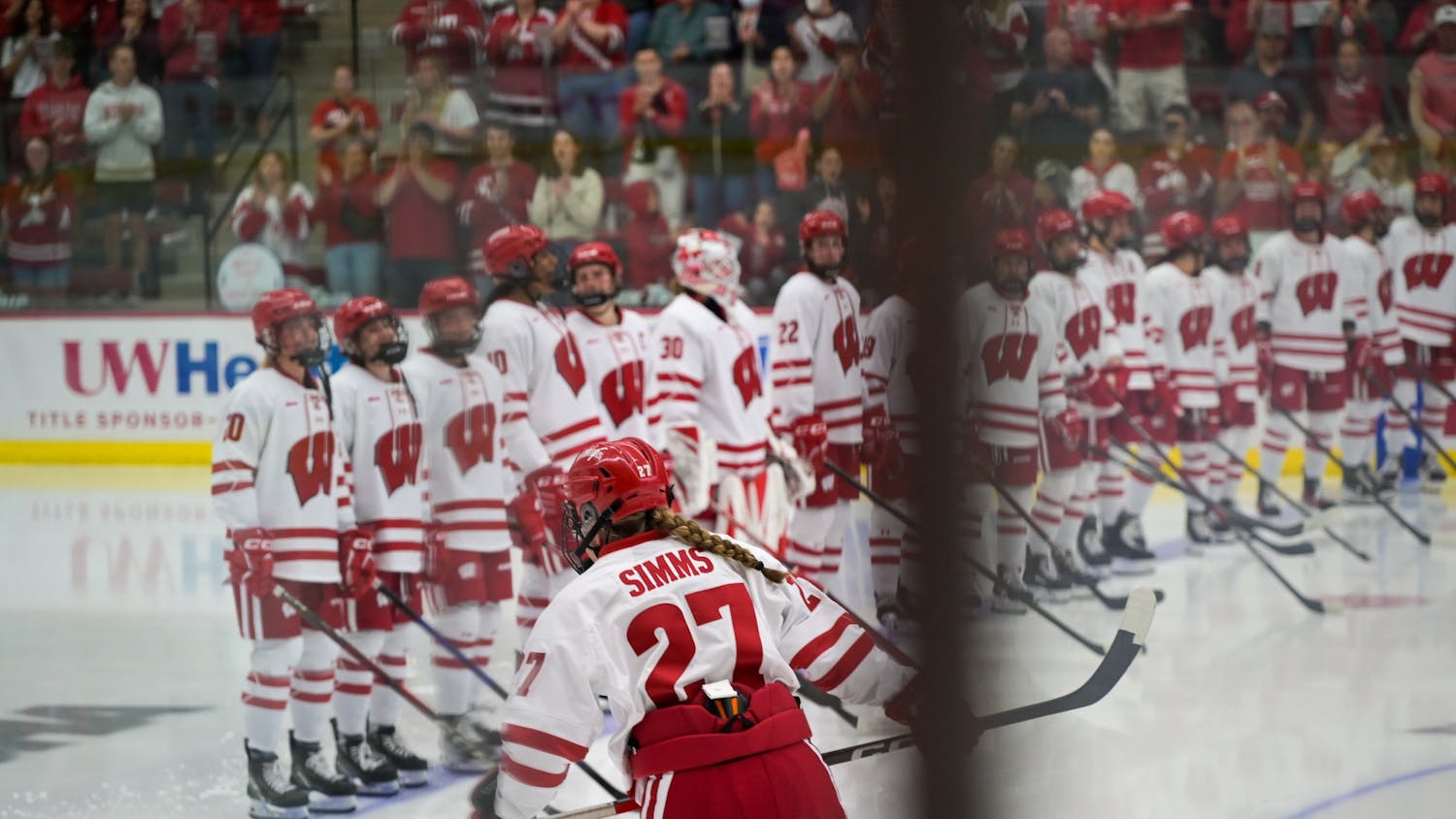Brett Kavanaugh’s confirmation hearing opening statement consisted of fun-filled memories and heartfelt thank-you’s. He expressed how much he loves his family, adding light-hearted anecdotes about his wife and kids. He was trying to relate to you. Maybe he succeeded.
But his barbecue dad persona and love of coaching his kid’s basketball team hold no relation to serving on the Supreme Court of the United States. Unfortunately, as affable as Kavanaugh appears, as much as you may want to like him, his hearings and past rulings validate fears regarding the future of women’s rights, environmental protection presidential power.
A possible Kavanaugh confirmation foreshadows an eerie series of hyper-conservative policies that could last for decades he’s trying to cover it all up with unwarranted chuckles and by sidestepping questions.
Roe v. Wade is in danger.
Kavanaugh spent a good amount of his opening statement talking about how proud he is to have “strong” daughters, but his track record and comments indicate that he would have no problem taking away their right to choose.
During his confirmation hearing, Kavanaugh continuously dodged questions regarding potential future rulings on abortion, saying that Roe v. Wade has been upheld by “precedent,” seemingly attempting to sound indifferent about the case.
However, Kavanaugh’s past rulings contradict his apparent nonchalance regarding a woman’s right to choose.
Garza v. Hargan determined that an undocumented immigrant minor could be temporarily released from custody in order to obtain an abortion.
Kavanaugh wrote a decision blocking the abortion for 10 days, which was later overturned by an appeals court. Kavanaugh then drafted a dissent accusing the majority of discounting the “precedent” of valuing fetal life and thinking that “the Government must allow unlawful immigrant minors to have an immediate abortion on demand.”
Despite Kavanaugh’s apparent rigidity towards “precedent,” he fails to exercise the same interpretation when he politically disagrees with previous rulings. In 1979, Bellotti v. Baird ruled that a minor may choose to terminate their pregnancy without parental consent.
In addition, Planned Parenthood of Southeastern Pennsylvania v. Casey asserts that the government may not place unjustifiable obstacles in the way of a woman’s ability to exercise her right to abortion pre-viability.
A 2003 email further demonstrates Kavanaugh’s flexibility toward abortion precedent.
Kavanaugh writes “I am not sure that all legal scholars refer to Roe as the settled law of the land at the Supreme Court level since the Court can always overrule its precedent, and three current Justices on the Court would do so,” contradicting his aim to appear to be impartial during his confirmation hearing, where he called the case “settled law.”
He later claimed that the email did not entail his personal views on abortion and was merely attempting to view the case from a scholarly standpoint.
Regardless of this excuse, it is abundantly clear that Kavanaugh discounts only set precedents he personally disagrees with, a habit he has hypocritically claimed judges should avoid.
The effects of climate change are only worsening, and Kavanaugh doesn’t plan on helping.
His past rulings show that he favors deregulation and stripping the Environmental Protection Agency of the power to protect the environment.
In a 2014 opinion regarding White Stallion Energy Center LLC v. EPA, Kavanaugh argued that the EPA should take into consideration the financial effects of imposing regulations on fossil fuels. The court sided with the EPA, affirming that the agency did not need to take monetary costs into account. It seems Kavanaugh is unaware that it’s not the EPA’s job to save oil and coal companies money.
Furthermore, in 2016, Kavanaugh argued that Congress should take on the issue of climate change in place of the EPA, supposedly not trusting environmental experts to handle it.
He stated that since climate change was not known at the time of the EPA’s establishment, they have no legal authority to address it. This interpretation is problematic for a variety of reasons.
First, Kavanaugh’s timeline is simply incorrect. The first research on climate change was published in 1965, and the EPA was established in 1970. The second problem with Kavanaugh’s view is that the Clean Air Act does not provide a specific list of pollutants the EPA is allowed to regulate, but rather enables the EPA to regulate “any air pollutant” that “endangers public health and welfare.”
Trump appointing Kavanaugh raises major concerns regarding presidential power.
Kavanaugh has implied that he does not think a sitting President of the United States should be subject to investigation, noting in a 2009 article that he believes “the President should be excused from some of the burdens of ordinary citizenship.”
In the same article, he goes on to insinuate that the Osama bin Laden assassination could have happened earlier if Clinton hadn’t been “distracted by the Paula Jones sexual harassment case.”
Furthermore, during his confirmation hearing, Kavanaugh couldn’t give Sen. Dianne Feinstein (D - California) a straight answer when she asked if he thought a president could pardon himself from an investigation, claiming that it was a “hypothetical” question about “something [he’s] never analyzed.”
Kavanaugh has yet to commit to or even hint at recusing himself from a potential case brought about by Special Counsel Robert Mueller’s investigation that has already resulted in indictments of 12 Russian intelligence officers and multiple Trump aides.
If Trump were to be indicted for obstruction of justice, his own pick for the Supreme Court would oversee the case, raising questions of impartiality.
Overall, Kavanaugh and his hyper-partisan tendencies would be a disaster in the Supreme Court.
A Supreme Court justice with a lengthy history of serving the Republican party and consistently demonstrating conservative ideology has no chance of being a “neutral and impartial arbitrator” as he has claimed.
He selectively applies precedent to cases, especially those concerning a woman’s right to choose, and he has little regard for the mission of the Environmental Protection Agency. Most alarmingly, his beliefs regarding presidential investigations have the potential to lead us into a constitutional crisis.
Ashley is a sophomore studying journalism. What are your thoughts on Brett Kavanaugh’s nomination? How do you feel about the politicization of Supreme Court confirmation hearings? Send any comments, questions or concerns to opinion@dailycardinal.com.






